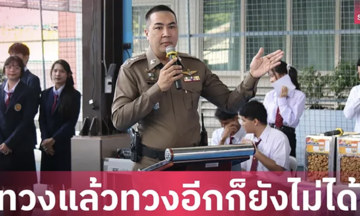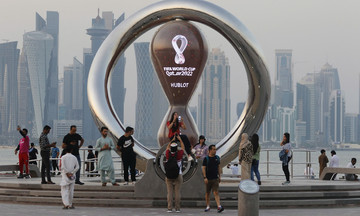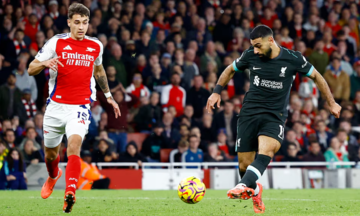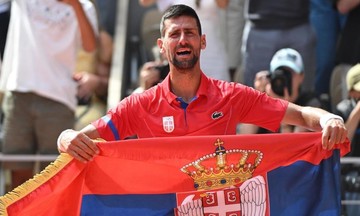Inaugurated in 1920, Fluminense's headquarters, located in Rio de Janeiro’s upscale Laranjeiras neighborhood, has been recognized as a cultural heritage site since 1988. The building’s Louis XVI facade, lavish interior blending art nouveau and art deco, marble engravings of prominent athletes, and meticulously manicured gardens reflect the aristocratic origins of the last South American team remaining in the 2025 FIFA Club World Cup.
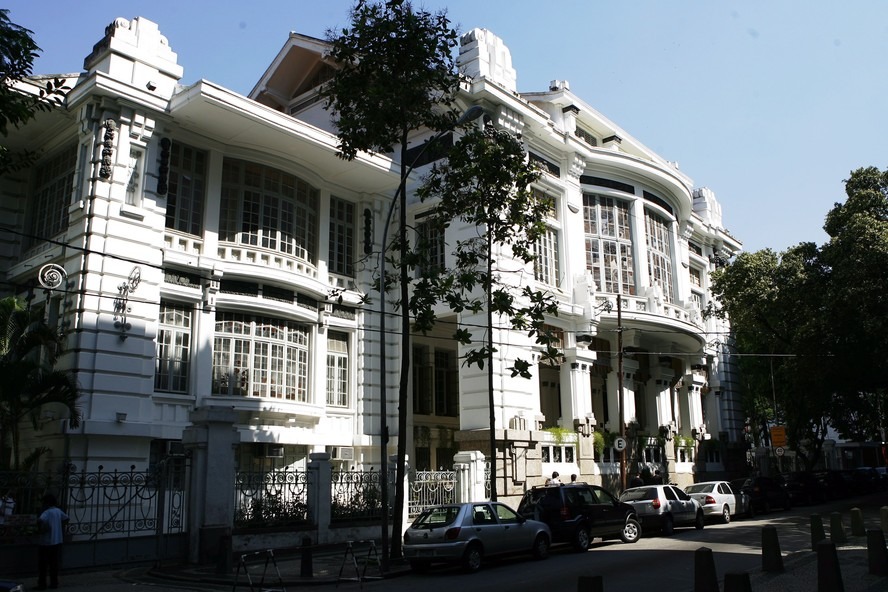 |
Fluminense’s headquarters in Rio de Janeiro is over 100 years old. Photo: Globo |
Fluminense’s headquarters in Rio de Janeiro is over 100 years old. Photo: Globo
Fluminense was founded in 1902 by 20 members, including its first president, Oscar Cox, whose father was English. This period coincided with the "Belle Epoque" in Europe, before the outbreak of World War I. While Rio de Janeiro experienced its own "Belle Epoque," it also saw the emergence of the first favela in Morro da Providencia. Rio was modern and international, with English sports like cricket and rowing gaining popularity, while football remained a pastime for the elite.
Fluminense's former stadium, Laranjeiras, was built on land granted by the Guinle family, known for their opulent palaces in Rio. Match invitations were written in English, and after 90 minutes, cheers for the British Royal Family echoed through the stands. Initially, Fluminense's squad had no black players.
On 15/1/1914, Fluminense witnessed a pivotal moment in Brazilian football history. In a match against America, during a time of racial prejudice, Carlos Alberto Fonseca Neto, a black midfielder, reportedly used rice powder to lighten his skin to blend in with his white teammates. This story was later dramatized in Globo's 2014 television series "Lado a lado," where Carlos Alberto was called "Chico."
As sweat revealed his ruse, America fans allegedly chanted, "Rice powder! Rice powder!" Fluminense’s research later revealed that Carlos Alberto had already been using rice powder while playing for America. Resentful of his transfer to Fluminense, America fans used the chant to taunt him and accuse his new team of racism, given its history. The chant was later adopted by fans of Rio's other major clubs: Botafogo, Vasco da Gama, and Flamengo.
To reclaim this narrative, Fluminense fans now sprinkle rice powder as a celebratory ritual, a practice embraced by fans of all races. They consider it "football culture," while others see it as a "vestige of racism."
Considered the "birthplace" of the Brazilian national team, with the Selecao’s first match taking place in 1914, Fluminense has been home to legends like Tele Santana, Carlos Alberto (captain of the 1970 World Cup-winning team), Rivelino, Dirceu, Pintinho, Marcelo, and even Ronaldinho and Romario in their later years.
Among Fluminense's notable figures is their current coach, Renato Gaucho. The 62-year-old is a controversial figure, known for his flamboyant personality since his playing days.
During his brief stint with AS Roma in 1988, Renato, expected to replace fan favorite Zbigniew Boniek, arrived by helicopter, sporting jeans, a Roma jersey, and sunglasses. His performance, however, was less dramatic: he played only 23 matches, scoring 5 goals, before returning to Flamengo.
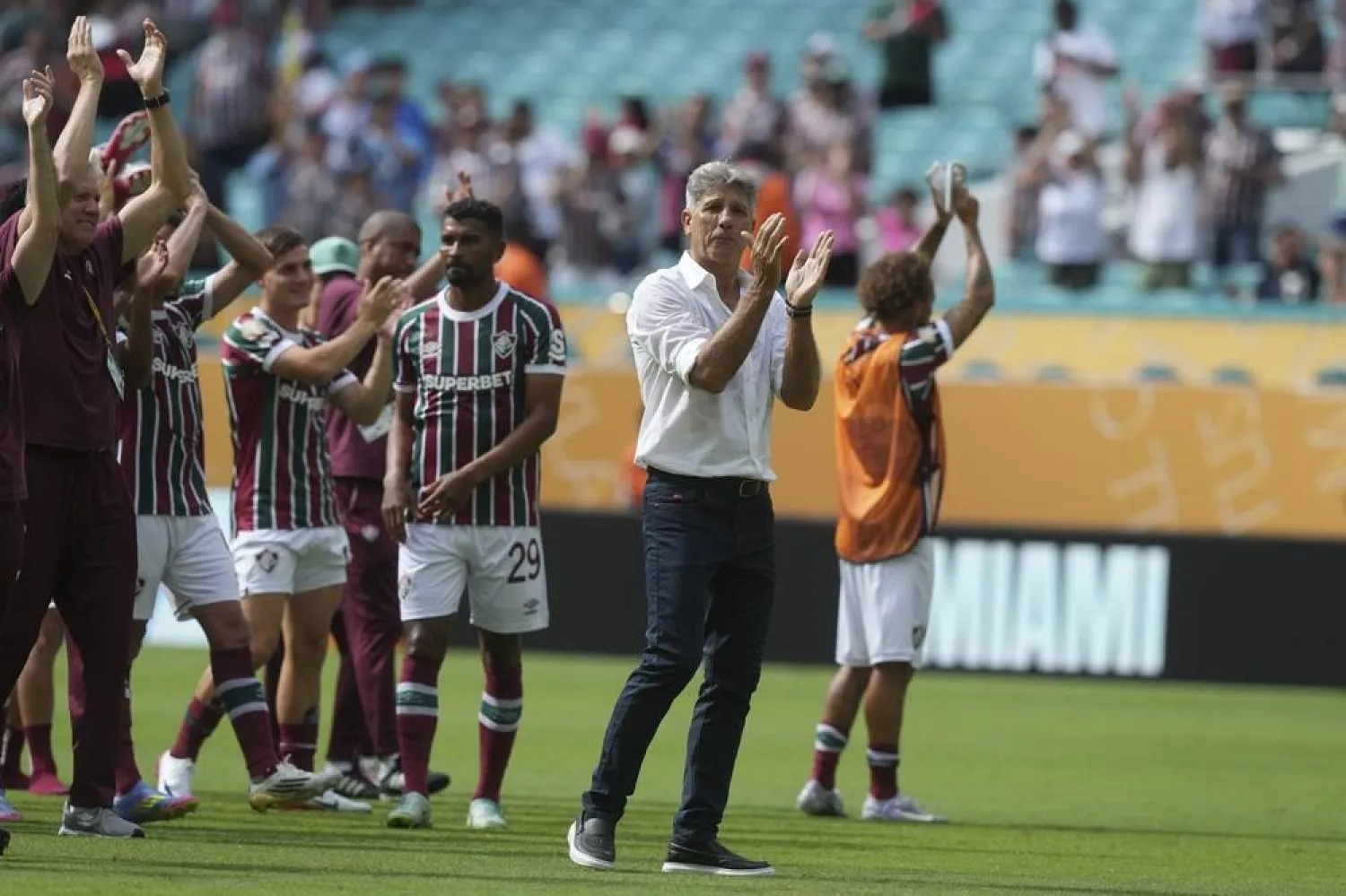 |
Coach Renato Gaucho and his players thank the fans after Fluminense’s victory in the round of 16 at the 2025 FIFA Club World Cup. Photo: AP |
Coach Renato Gaucho and his players thank the fans after Fluminense’s victory in the round of 16 at the 2025 FIFA Club World Cup. Photo: AP
Renato once famously quipped to Pele, during a televised review of the legend’s goals, "1,000 goals," to which Renato replied, "For every goal you scored, I had a woman." He later added, "Pele stopped at 1,000, but I didn’t." Rumors in Brazil even claimed Renato boasted of having 5,000 lovers.
His penchant for nightlife cost him a spot on Brazil's 1986 World Cup squad. Coach Tele Santana dismissed Renato after he and teammate Leandro hosted a party outside the team hotel. Initially, only Renato was expelled, but Leandro declared, "If Leandro doesn't go to the World Cup, neither do I." Despite pleas from Zico and Socrates, Leandro stood by his friend.
As a coach, Renato is known for his unorthodox methods. In a now-famous press conference while coaching Gremio, he compared the art of seduction to ball possession. He described a man spending hours wining, dining, and dancing with a woman, "expending a huge amount of saliva," while a friend achieved the same result in 15 minutes.
"Possessing the ball a lot is like that guy taking a girl to dinner at 9 p.m., going to a nightclub at 11:30 p.m., and wasting saliva until 5 a.m., while another guy only needs 15 minutes to win her over and take her to a hotel. Do you get the lesson? Possessing the ball is wasting saliva… 7 or 8 hours… while my friend won in 15 minutes," he explained, leaving the Brazilian media stunned.
At the 2025 FIFA Club World Cup, during the round of 16 match against Inter, Renato threw the ball away to prevent Henrikh Mkhitaryan from taking a quick throw-in, sparking a confrontation with Inter captain Lautaro Martinez and a melee between the two teams. Renato received a yellow card for his actions.
Before the quarterfinal against Al-Hilal, Renato called his team the "ugly duckling" compared to the other seven teams in terms of financial resources. However, he repeatedly emphasized, "Football is decided on the pitch." He was proven right as financial disparities didn't translate to on-field results in Florida.
"Fluminense fans should be very proud of what we have achieved at this FIFA Club World Cup," Renato said after the quarterfinal. "Wear the team's jersey, go to the beach, walk down the street, go to the mall. This team is making history. We are the ugly duckling financially, but on the pitch, it's 11 against 11. The opponent wants to win, but we want it more. We are going to New York to play the semifinal, and that is a well-deserved reward."
Fluminense entered the FIFA Club World Cup as underdogs. They qualified as the 2023 Copa Libertadores champions, their only South American title to date. Then coached by Fernando Diniz, who also managed the Brazilian national team, Fluminense was considered a prime example of "tiki-taka" football.
Now, Renato’s Fluminense employs a high-pressing, "chaotic" style, prioritizing quick transitions over ball possession.
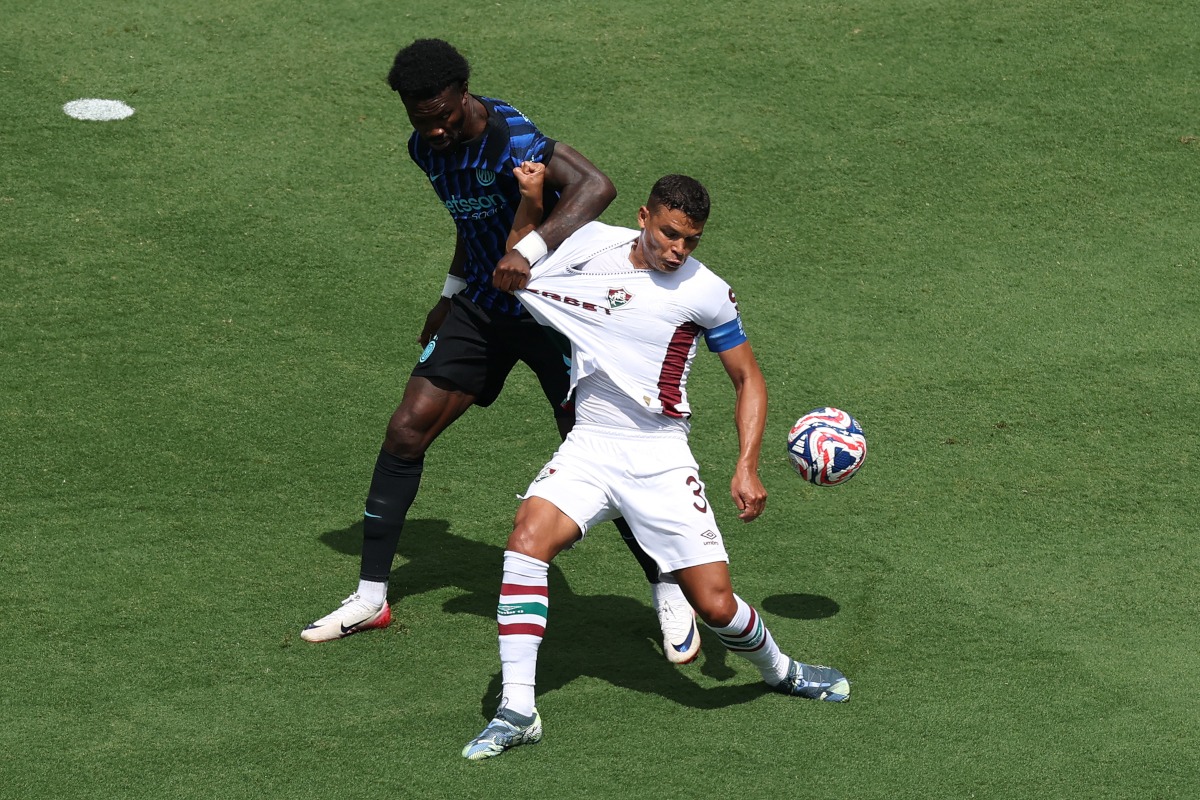 |
Thiago Silva (white jersey) shields the ball during Fluminense’s 2-0 victory against Inter at the 2025 FIFA Club World Cup. Photo: AFP |
Thiago Silva (white jersey) shields the ball during Fluminense’s 2-0 victory against Inter at the 2025 FIFA Club World Cup. Photo: AFP
Statistics show Fluminense only out-possessed their opponents in their 4-2 win against Ulsan Hyundai (70%). In other matches, the figures were significantly lower: 42% against Al-Hilal (2-1 win), 32% against Inter (2-0 win), 32% in the draw with Mamelodi (0-0), and 46% in their opening draw with Dortmund (0-0). Renato, however, remains unconcerned by these statistics.
In recent years, Fluminense focused on a "now or never" project to win a continental title. They succeeded but faced immediate challenges. Last season, they narrowly avoided relegation from the Brasileirao in the final round, despite leveraging their youth academy to minimize transfer costs. After 11 rounds this season, they are currently sixth in the Brazilian league.
Fluminense’s Libertadores-winning squad remains veteran-heavy. 41-year-old Thiago Silva replaced the retired 41-year-old Felipe Melo. Goalkeeper Fabio is still playing at 44. While 35-year-old left-back Marcelo has departed, 35-year-old right-back Xavier remains. 37-year-old German Cano leads the attack, with 35-year-old playmaker Ganso on the bench.
Fluminense previously reached the final of the old Club World Cup format, losing to Man City. Arriving in the US with low expectations, they are now one match away from the final. Renato's team might still be underdogs in the semifinal, but this is proving to be a sweet summer. Their success has earned them 60.8 million USD in prize money, equivalent to 81.7% of their total revenue last year.
Compiled by Hoang Thong





